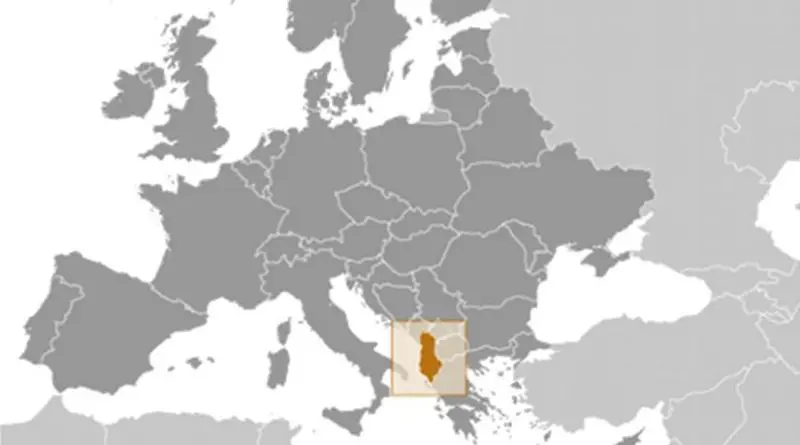Albania: Opposition Seeks To Outlaw Communism Symbols
By Fatjona Mejdini
After children were seen waving pictures of the late Stalinist dictator Enver Hoxha, Albania’s main opposition party said it will submit a draft law outlawing the displays of such symbols.
The head of Albania’s main centre-right opposition Democratic Party, Lulzim Basha, on Monday said his party would soon submit a draft law seeking to ban the display of communist symbols in public.
The Democrats’ leader said his party was seeking help from German partner parties in order to follow the same model that Germany has, in banning Nazi symbols.
“We are going to propose an initiative very soon to parliament that will ban and criminalise the use of communist symbols, following the law that Germany uses for Nazi symbols,” Basha said.
Albanians suffered under the harshest communist regime in Eastern Europe for almost 45 years, but some – to Basha’s disgust – still feel nostalgic for the times of former Stalinist dictator Enver Hoxha.
On Saturday, some celebrated the 75th anniversary of Peza Conference, where Hoxha forged a united front against the then German occupation – a milestone in his later seizure of power.
During the commemorations, small children were seen waving placards with pictures of Hoxha. Every year the event sees similar displays, usually by war veterans.
“This is an enduring disease that is not to be cured by superficial methods,” Basha said.
Pictures of Hoxha and communist symbols are also to seen on November 29, the day when some mark the end of the German and Italian fascist occupation of Albania towards the end of the Second World War.
Germany’s criminal code, section 86a, bans the “use of symbols of unconstitutional organizations” outside of the contexts of “art or science, research or teaching”.

